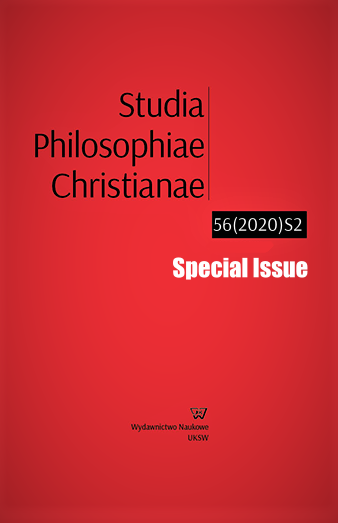WHAT NORMATIVITY AFTER THE “DEATH OF GOD”? ETHICAL IMPLICATIONS OF WEAK THOUGHT
WHAT NORMATIVITY AFTER THE “DEATH OF GOD”? ETHICAL IMPLICATIONS OF WEAK THOUGHT
Author(s): Andrzej KobylińskiSubject(s): Cultural history, Metaphysics, Ethics / Practical Philosophy, Contemporary Philosophy, Social Norms / Social Control
Published by: Wydawnictwo Naukowe Uniwersytetu Kardynała Stefana Wyszyńskiego w Warszawie
Keywords: weak thought; strong thought; human nature; morality; nihilism; freedom; natural law; cultural heritage; post-metaphysical ethics;
Summary/Abstract: The article aims to analyse the concept of normativity in the philosophy of weak thought developed by Gianni Vattimo. Weak thought refers to the theory of a weakening of being in an era of the end of metaphysics, as well as a challenge to the Cartesian concept of the subject. Such a philosophical theory does not entirely abandon normativity in the moral dimension. Vattimo proposes a weak notion of normativity, i.e. persuasion, without claims to universal applicability. Weak normativity derives from dialogue and respect for tradition, it recommends compliance with specific moral principles, but it does not acknowledge universal ethical obligations. This version of normativity is grounded in cultural heritage, agreement and social contract.
Journal: Studia Philosophiae Christianae
- Issue Year: 56/2020
- Issue No: S2
- Page Range: 199-215
- Page Count: 17
- Language: English

